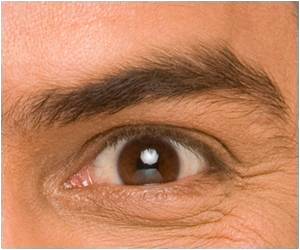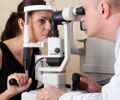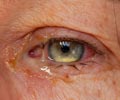
The journal is published by Lippincott Williams & Wilkins, a part of Wolters Kluwer Health.
Using well-designed and validated tools to assess patient-reported outcomes can lead to new insights for improving the results of cataract care, suggests the study by Mats Lundström, MD, PhD, of Lund University and Ulf Stenevi, MD, PhD, of Sahlgren's University Hospital, Sweden. Their paper is part of a special theme issue on "Measuring the Patient's Perspective" in optometry research and clinical practice.
Study Compares Clinical and Patient-Reported Outcomes of Cataract Surgery Using a nationwide registry, Drs Lundström and Stenevi evaluated clinical and patient-reported outcome measures in nearly 10,000 cataract surgeries performed in Sweden between 2001 and 2011. For example, a major clinical outcome measure after cataract surgery is visual acuity. But improved visual acuity may not always reflect patient ratings of change in vision from before to after the procedure—especially in performing everyday functional tasks.
Not surprisingly, a comparison of the two sets of outcomes found that patient-reported measures were affected by clinical measures. Factors affecting patient-reported outcomes included visual acuity in both the operated and nonoperated eyes, change in visual acuity in the operated eye, and any other eye-related conditions ("ocular comorbidity").
However, more useful information was gained by looking at factors related to better or worse patient-reported outcomes. For example, patients who reported better visual function before surgery or who had poor visual acuity in the nonoperated eye were more likely to have poorer patient-reported outcomes after cataract surgery.
Advertisement
The study also looked at situations where the clinical outcomes were good but patient-reported outcomes were poor—which happened in about seven percent of cataract surgeries. In many of these cases, poor near vision after the procedure was a major contributor to patient dissatisfaction.
Advertisement
The new study helps vision care professionals in understanding how patient-reported outcome measures might be used to improve on the results of cataract surgery from the patient's perspective. For example, Drs Lundström and Stenevi suggest that surgery could be delayed or not performed in patients who feel they aren't having a lot of problems with daily activities—perhaps especially if they have good near vision.
The special theme issue presents 20 papers on topics related to the use of patient-reported outcomes in vision care. "These papers focus on new tools that are being increasingly used to assess the patient's perspective on a wide range of important conditions, problems, and outcomes," comments Anthony Adams, OD, PhD, Editor-in-Chief of Optometry and Vision Science. "These measures allow us to rigorously measure the outcomes important to patients, and to do so in a very meaningful way."
Source-Eurekalert












